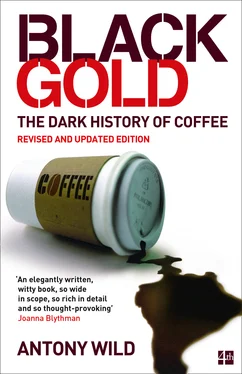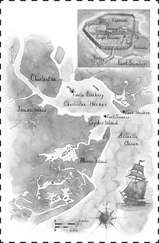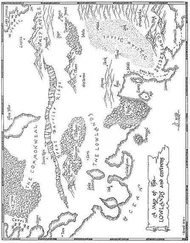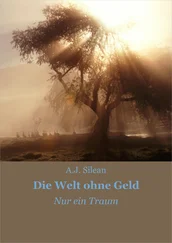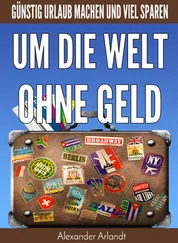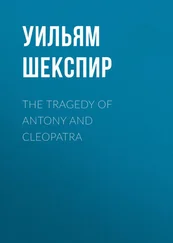Sufis did not live a cloistered existence, and the reason why their dhikrs tended to take place at night was that many of their numbers followed a normal life of work and family during the day – hence the value ascribed to coffee as a means of staying awake during prayers. As they lived amongst the community it would seem that the new habit of coffee drinking was rapidly disseminated amongst the population as a whole. Again the best evidence for this comes from archaeology; within a hundred years the Haysi potteries had evolved an individual coffee cup of the size and shape of a modern demitasse, or the smaller Turkish findjan . This would suggest that coffee consumption had spread from ritual to individual domestic consumption. Its wildfire spread through Islam, however, was the result of geopolitics: the growth of the coffee trade depended upon the relative security of the Red Sea and its ports, and a unified political and spiritual rule that allowed coffee to be quickly adopted.
It happened that the late fifteenth and early sixteenth centuries, when coffee drinking was first becoming established in Yemen both ritually and domestically, coincided with the first flush of the Ottoman empire. In 1517 at Cairo, having already conquered Constantinople and most of the Balkans in the previous century, the Ottomans under Selim I finally defeated the Mamelukes, who had been the rulers of Egypt and the Levant for the previous 250 years. The Ottomans had thus acquired, along with the holy Islamic cities of Mecca and Medina, the Caliphate – the spiritual leadership of Islam. The Mamelukes were originally a soldier-slave élite from southern Russia and the Caucasus. Driven from Egypt by the advancing Ottomans, a large number made their way to Yemen in 1516 where they settled in the Tihama, the desert coastal plain – it is said that they chose Yemen because they knew that qat was plentiful there. They finally succumbed to the Ottomans, who had taken Aden in 1538 and themselves started to occupy the Tihama, although they did not take inland San’a for another ten years.
It was during the Mameluke rule in Mecca that the spread of coffee attracted its first serious obstacle, in the form of the ban imposed on it by Kha’ir Bey, who was the Pasha of the city as well as the muhtasib , the inspector of markets. On 20 June 1511, outside the mosque, he spotted a number of men drinking what appeared to him to be alcohol in buildings resembling taverns; he made enquiries and found that it was in fact a new beverage, coffee, being drunk in rudimentary coffee houses. To confuse matters, there are some indications that it was actually qish’r coffee that had reached Mecca, not yet the roasted bean form, bun . Additionally, the dry coffee cherries which made qish’r could be lightly roasted before brewing, producing sultana coffee, and the word kafta , by which coffee was sometimes known, was applied as much to a decoction made of the leaves of qat as to one made of coffee beans. It can be seen that there was probably a reasonable requirement for an authoritative clarification of exactly what was what, and what was permissible. Clearly the habit of drinking some form of coffee-based decoction had moved up the Red Sea coast in the thirty years or so since it had become established in Yemen, but it had not until this time been subjected to the catechism, and its novelty represented something of a puzzle to Islamic orthodoxy. Because of the strict prohibition on any form of intoxication, coffee was a genuinely sticky issue which required a ruling. Kha’ir Bey was the first man to attempt to provide it.
He rapidly assembled a team of learned men, doctors, clerics and ‘men on the street’. The issues they were called upon to consider, which are reported in the mahdaf ’ or minutes of the meeting of jurists at Mecca, were the application of core Islamic concepts to coffee; regarding things not expressly forbidden ( sunna ) in the Qur’an that were permissible unless harmful to the body; regarding khamr (wine) and the idea that ‘every intoxicant is khamr and every intoxicant is forbidden’ as it rendered men ‘incapable of distinguishing a man from a woman or the earth from the heavens’; regarding jaziri ta’ assub or a fanatical non-textual conviction based on an exaggerated sense of piety; regarding ijima , or communal acceptance; and regarding marqaha , the specific intoxication brought about by coffee. The coffee houses themselves also needed to be considered: were they, as had been suggested, centres of music, gambling, and mixing of the sexes? The fact that coffee was passed around, although ritually in a dhikr , evidently evoked the alehouse. There were many issues for discussion: even its most virulent detractors could hardly claim that the result of drinking coffee met the definition of intoxication, yet it undoubtedly had some effect. The inherent moderating influences of Islam demanded that it should not be banned on the basis of an exaggerated sense of piety, yet perhaps coffee was harmful to the body? Medical opinion was sought on the basis of the humour system and its degrees – the first representing food; the second, food and medicine; the third medicine; and the fourth, poison. Coffee, it was found, was ‘cold and dry’ and heightened melancholia.
The debate and the people who took part are usually characterized in Western coffee histories as superstitious and irrational, whereas the Western heroes of the coffee saga (de Clieu, Franz Georg Kolschitsky, and Francisco de Mello Palheta, amongst others, whom we shall meet in these pages) are treated as romantic, swashbuckling figures. We have seen that Islam had been the torch-bearer of science and culture during the European Dark Ages, but as soon as the West started to overtake it in the last five hundred years of the second millennium, history, as much as any other field of endeavour, was skewed to represent the natural superiority of European, Christian ways over those of the benighted unbelievers. Many popular historians view the genuine issues and debate surrounding the introduction of the new beverage in Islam with, at best, levity and at worst an underlying contempt. It is easy to forget that coffee is a powerful drug, and that its cultural assimilation was by no means preordained. Islam, by virtue of geography, was at the forefront of the process of weighing up its advantages and disadvantages. The intellectual approach involved theology, science, polemic, and even poetry – in Yemen a literary genre emerged that pitched coffee and qat against each other in imaginary dialogue:
Qat says: They take off your husk and crush you. They force you in the fire and pound you. I seek refuge in God from people created by fire!
Coffee says: A prize can be hidden in a trial. The diamond comes clear after fire. And fire does not alter gold. The people throw most of you away and step on you. And the bits they eat, they spit out. And the spittoon is emptied down the toilet!
Qat scoffs: You say I come out of the mouth into a spittoon. It is a better place than the one you will come out!
Hashish and tobacco were similarly scrutinized when they arrived in the Middle East at the end of the sixteenth century. Alcohol had long before been the subject of controversy: the Qur’an refers (47: 15) to ‘rivers of wine … delicious to the drinkers’ but its prohibition is based on verses 5: 90–1. The continuation of that prohibition into the present day is a recognition of the weight of the authority of the initial debate. Western laws that today license alcohol and tobacco consumption but prohibit hashish and opium use have likewise emerged from a cultural consensus, a combination of science, social pragmatism, and superstition. If coffee were to be introduced to the West today, it is hard to imagine that it would get the approval of the regulatory authorities – as it was, coffee caused fierce controversy when it was introduced to Europe during the seventeenth century, and there were doubts about its suitability in Christendom. Unsubstantiated reports have Pope Clement VIII giving coffee his blessing on the basis that such a delicious drink should not be the exclusive preserve of Muslims.
Читать дальше
